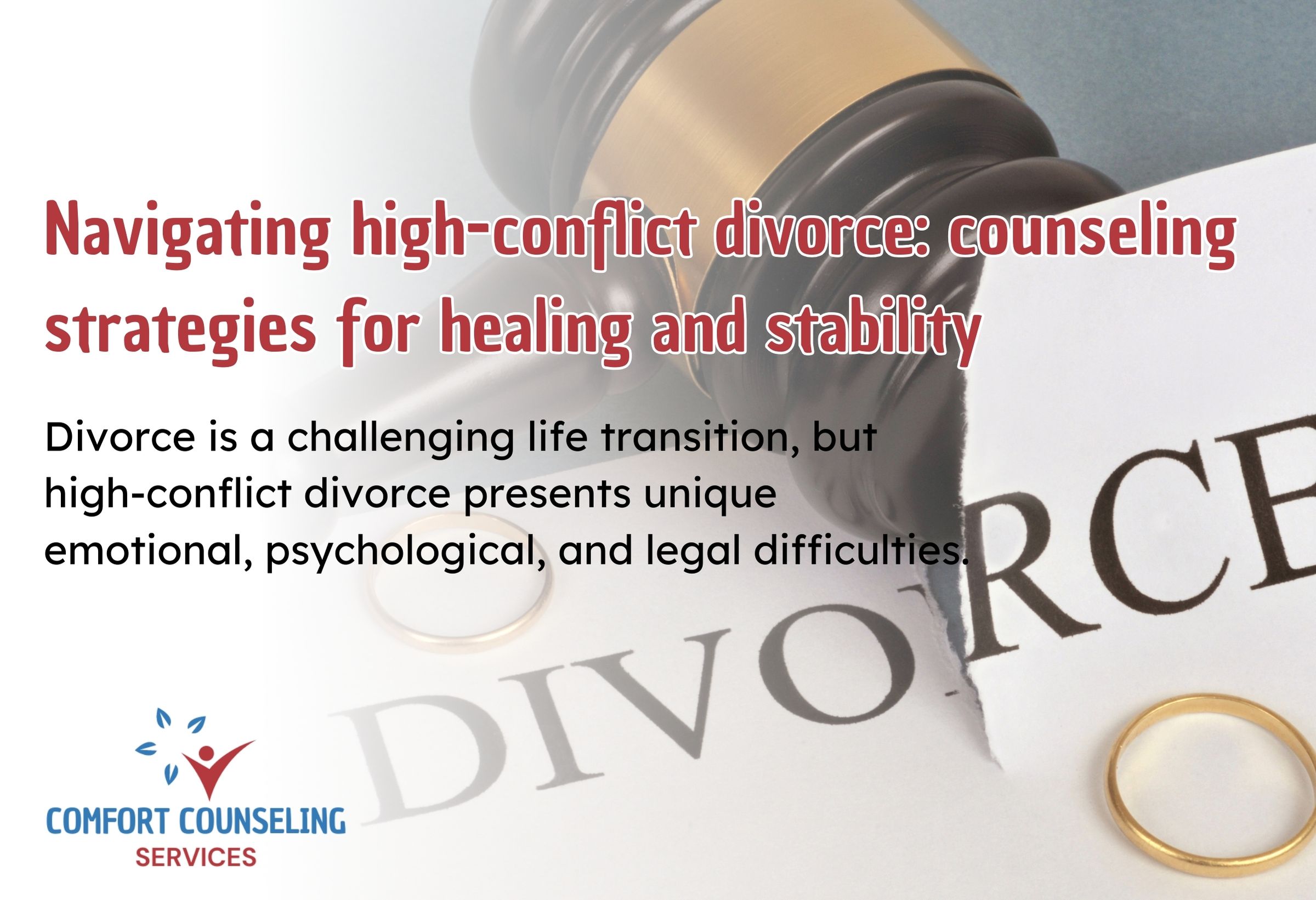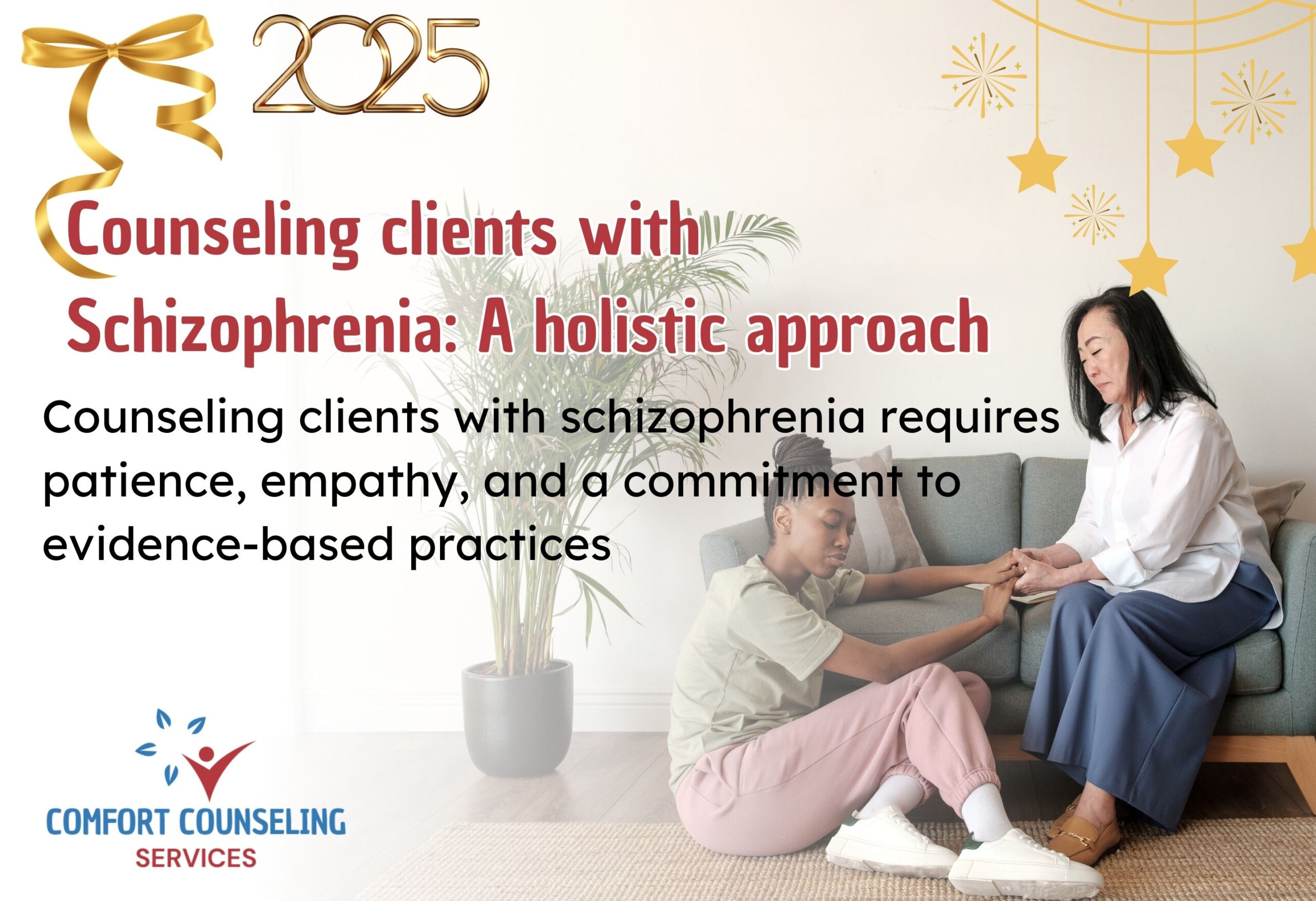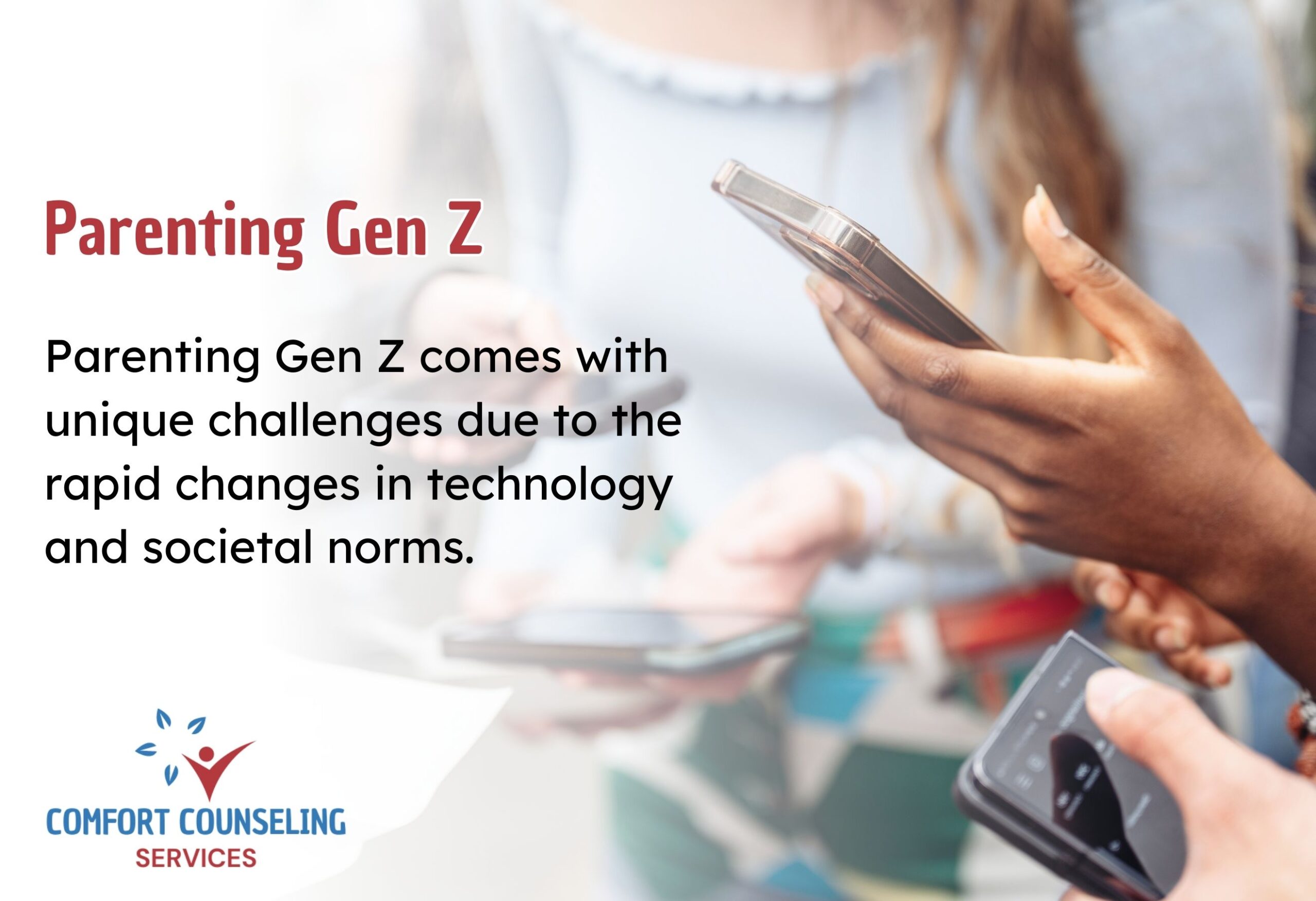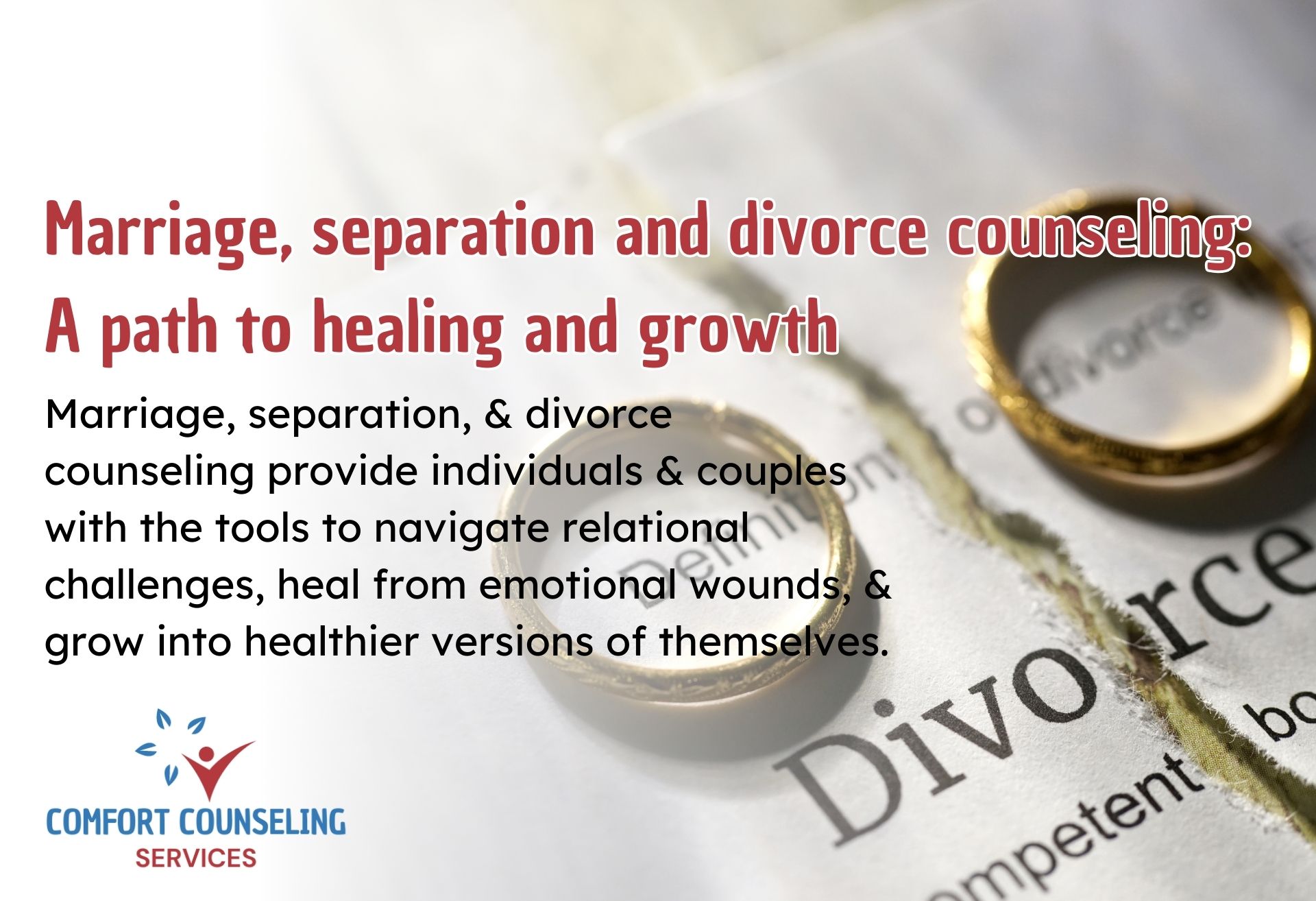Introduction
Divorce is a challenging life transition, but high-conflict divorce presents unique emotional, psychological, and legal difficulties. Characterized by prolonged disputes, hostility, and challenges in co-parenting, high-conflict divorces often lead to severe emotional distress, particularly for children caught in the middle. Studies show that approximately 10-15% of divorces fall into the high-conflict category, leading to long-term psychological impacts (Johnston, 2019).
Counseling plays a crucial role in helping individuals navigate the emotional turmoil, establish healthy coping mechanisms, and develop strategies to protect their well-being and that of their children. This blog explores the psychological effects of high-conflict divorce, evidence-based counseling strategies, and supportive resources to help individuals regain stability and resilience.
Understanding high-conflict divorce
High-conflict divorces are often fueled by persistent legal battles, parental alienation, and emotional manipulation. Research identifies key characteristics:
- Intense and ongoing disputes – Legal battles over child custody, financial settlements, and personal grievances prolong emotional distress (Kelly & Emery, 2003).
- Communication breakdown – Manipulation, threats, or complete avoidance prevent constructive dialogue (Sbarra & Emery, 2008).
- Parental alienation – One parent undermines the relationship between the child and the other parent, causing emotional harm (Bernet, 2020).
- Personality disorders and narcissistic traits – One or both partners exhibit narcissistic, borderline, or antisocial traits, escalating conflict (Ramani, 2021).
The emotional consequences of high-conflict divorce can be severe, including anxiety, depression, post-traumatic stress, and low self-esteem (Amato, 2010). Counseling provides essential tools to help individuals manage these challenges.
Counseling strategies for high-conflict divorce
1. Trauma-informed therapy: healing from emotional abuse
Many individuals in high-conflict divorces experience psychological abuse. Trauma-informed counseling focuses on rebuilding self-worth, managing emotional triggers, and addressing PTSD symptoms (van der Kolk, 2014).
Recommended Therapy Approaches:
- Cognitive Behavioral Therapy (CBT) – Helps individuals reframe negative thought patterns and develop emotional resilience (Beck, 2021).
- Eye Movement Desensitization and Reprocessing (EMDR) – Effective for processing trauma related to abuse and manipulation (Shapiro, 2018).
- Dialectical Behavior Therapy (DBT) – Helps individuals regulate emotions and manage conflict without being drawn into drama (Linehan, 2015).
2. Parallel parenting: managing co-parenting with a high-conflict Ex
Traditional co-parenting may not work in high-conflict cases. Parallel parenting allows minimal direct interaction while ensuring children receive stability (Deutsch & Pruett, 2009).
Key parallel parenting strategies:
- Use written communication (emails, parenting apps) to minimize direct conflict.
- Stick to structured parenting plans and court orders.
- Set firm emotional and physical boundaries to protect personal well-being.
Helpful resources on parallel parenting:
- Podcast: Co-Parenting Without Chaos by Christina McGhee – Offers practical strategies for parallel parenting.
- YouTube Channel: Our Family Wizard – Provides tools for managing high-conflict co-parenting.
- Blog: Divorce and Children – Focuses on child-centered approaches to co-parenting.
3. Setting boundaries and avoiding emotional manipulation
Individuals in high-conflict divorces often face gas lighting, coercion, or verbal abuse. Counseling can help them develop assertive communication and recognize manipulation tactics (Evans, 2017).
Effective Strategies:
- The Gray Rock Method – Limiting emotional responses to prevent engagement in toxic behavior (Stines, 2016).
- Strategic Communication – Keeping interactions factual and minimal to reduce conflict (Davis, 2018).
4. Legal and Emotional Support Networks
Having a support system of counselors, lawyers, and support groups can help individuals navigate the legal and emotional complexities of high-conflict divorce (Braver & O’Connell, 1998).
Recommended Support Groups:
- One Mom’s Battle (OMB) – Advocacy group for individuals dealing with narcissistic ex-spouses.
- DivorcedMoms Forum – Online community for women navigating high-conflict divorce.
- OurFamilyWizard.com – A court-recommended tool for managing communication in high-conflict parenting situations.
5. Helping Children Cope with High-Conflict Divorce
Children caught in high-conflict divorces often suffer emotional distress, loyalty conflicts, and anxiety (Johnston & Roseby, 1997). Child-focused counseling can help mitigate these effects.
Best Practices for Protecting Children:
- Reassure children that they are not responsible for the conflict.
- Avoid speaking negatively about the other parent.
- Create a consistent and stable routine.
Helpful Resources for Children’s Emotional Well-being:
- Podcast: Raising Good Humans – Expert advice on parenting through divorce.
- Book: Two Homes by Claire Masurel – A child-friendly book about living in two households.
- YouTube Channel: Dr. Becky at Good Inside – Parenting strategies for emotionally supporting children.
Biblical and faith-based perspectives on high-conflict divorce
For individuals seeking faith-based guidance, the Bible provides wisdom on handling relational struggles.
- Psalm 34:18 – “The Lord is close to the broken-hearted and saves those who are crushed in spirit.”
- Proverbs 22:24-25 – Encourages avoiding relationships with abusive and angry individuals.
- 1 Corinthians 7:15 – Acknowledges that separation may be necessary in cases of unresolved conflict.
Faith-based counseling integrates biblical wisdom with psychological insights to support individuals in their healing journey (McMinn, 2011).
Conclusion: rebuilding after a high-conflict divorce
High-conflict divorce can be an emotionally draining and traumatic experience, but counseling offers tools to navigate the challenges, heal from emotional wounds, and regain personal strength. Whether through trauma-informed therapy, parallel parenting, boundary-setting, or faith-based guidance, individuals can emerge from the pain of divorce with resilience and hope.
If you or someone you know is facing a high-conflict divorce, Comfort Counseling Services provides specialized support to help you heal, navigate co-parenting challenges, and rebuild a fulfilling life.
References
- Amato, P. R. (2010). Research on divorce: Continuing trends and new developments. Journal of Marriage and Family, 72(3), 650-666.
- Beck, J. S. (2021). Cognitive Behavior Therapy: Basics and Beyond. Guilford Press.
- Bernet, W. (2020). Parental alienation: The impact on children. Journal of Family Psychology, 34(5), 670-682.
- Braver, S. L., & O’Connell, D. (1998). Divorced dads: Shattering the myths. TarcherPerigee.
- Davis, T. (2018). BIFF for Co-Parent Communication: Your Guide to Difficult Texts, Emails, and Social Media Posts. Unhooked Books.
- Evans, P. (2017). The Verbally Abusive Relationship: How to Recognize It and How to Respond. Adams Media.
- Johnston, J. R. (2019). High-Conflict Divorce: Understanding and Managing Complex Custody Disputes. Oxford University Press.
- Ramani, D. (2021). Should I Stay or Should I Go? Surviving a Relationship with a Narcissist. Post Hill Press.
- van der Kolk, B. (2014). The Body Keeps the Score: Brain, Mind, and Body in the Healing of Trauma. Viking.



